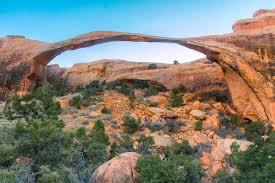
Spiritual Sunday
Spring has broken all over southern Tennessee, giving me the occasion to run Edwin Markham’s wonderful “Earth Is Enough.” His view, I believe, is similar to what Jesus meant by heaven on earth. We are to find heaven in ourselves and heaven in our surroundings, not wait until we die. To focus overmuch on the afterlife risks overlooking the blessings that we already have.
Or as the Archangel Michael says to Adam in Paradise Lost,
All secrets of the deep, all Nature’s works,
Or works of God in Heaven, Air, Earth, or Sea,
And all the riches of this World enjoyest,
And all the rule, one Empire; only add
Deeds to thy knowledge answerable, add Faith,
Add Virtue, Patience, Temperance, add Love,
By name to come called Charity, the soul
Of all the rest: then wilt thou not be loath
To leave this Paradise, but shalt possess
A Paradise within thee, happier far
In other words, we have been given the secrets of nature and the riches of the world and must respond with good deeds, faith, virtue, patience temperance and love or charity, “the soul of all the rest.”
Here’s Markham’s version of that advice:
We men of Earth have here the stuff
Of Paradise - we have enough!
We need no other stones to build
The Temple of the Unfulfilled -
No other ivory for the doors -
No other marble for the floors -
No other cedar for the beam
And dome of man's immortal dream.
Here on the paths of every-day –
Here on the common human way
Is all the stuff the gods would take
To build a Heaven, to mold and make
New Edens. Ours is the stuff sublime
To build Eternity in time!
For our Lenten Episcopalian services, we have been using Eucharistic Prayer C, which calls to acknowledge and respect the sacred within nature. I especially love the phrase, “and this fragile earth, our island home”:
At your command all things came to be: the vast expanse of interstellar space, galaxies, suns, the planets in their courses, and this fragile earth, our island home.
Congregation: By your will they were created and have their being.
From the primal elements you brought forth the human race, and blessed us with memory, reason, and skill. You made us the rulers of creation. But we turned against you, and betrayed your trust; and we turned against one another.
Congregation: Have mercy, Lord, for we are sinners in your sight.
Markham’s poem too reminds us of the divinity that lies all about us.
Further note: Having written this post made me particularly sensitive to moments in the service that emphasize the sacredness of our environment and our responsibilities to it. In the Prayers for the People, for instance, there was this:
For seasonable weather, and for an abundance of the fruits of the earth, let us pray to the Lord.
Lord, have mercy.
For the good earth which God has given us, and for the wisdom and will to conserve it, let us pray to the Lord.
Lord, have mercy.
We also sang the following hymn, originally an Isaac Watt poem that composer Ralph Vaughan Williams set to music:
I sing the mighty power of God,
that made the mountains rise,
That spread the flowing seas abroad,
and built the lofty skies.
I sing the wisdom that ordained
the sun to rule the day;
The moon shines full at God's command,
and all the stars obey.
I sing the goodness of the Lord,
who filled the earth with food,
Who formed the creatures through the Word,
and then pronounced them good.
Lord, how Thy wonders are displayed,
wherever I turn my eye,
If I survey the ground I tread,
or gaze upon the sky.
There's not a plant or flower below,
but makes Thy glories known,
And clouds arise, and tempests blow,
by order from Thy throne;
While all that borrows life from Thee
is ever in Thy care;
And everywhere that we can be,
Thou, God art present there.
I’m assuming I don’t have to state explicitly that seeing God’s hand in nature is not the same as a literal reading of the Book of Genesis. Science reveals one truth about creation, religion another.

